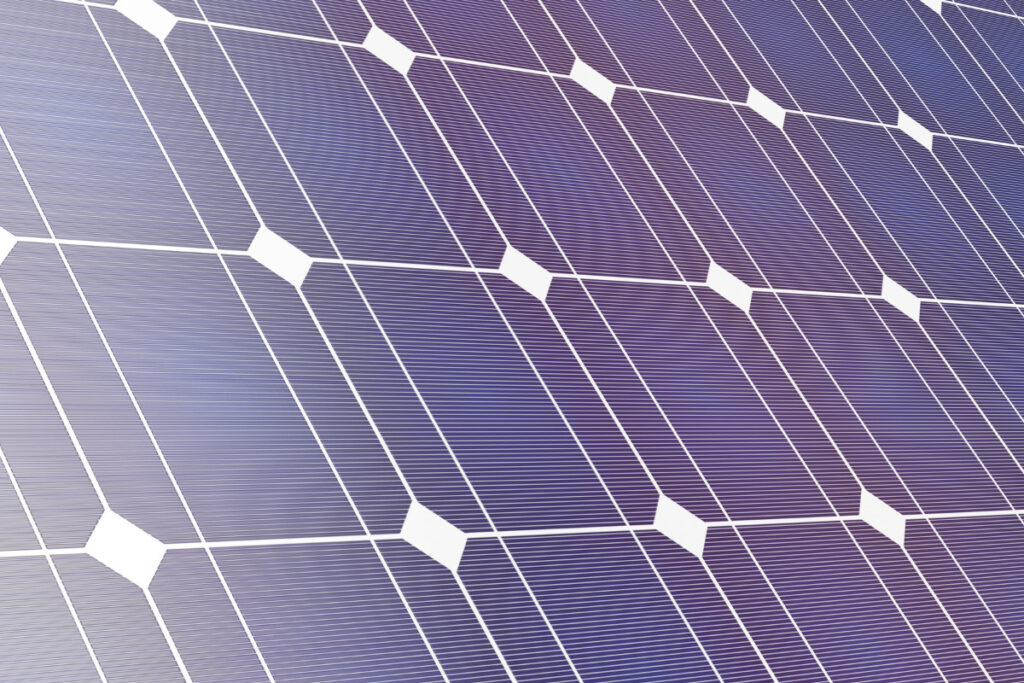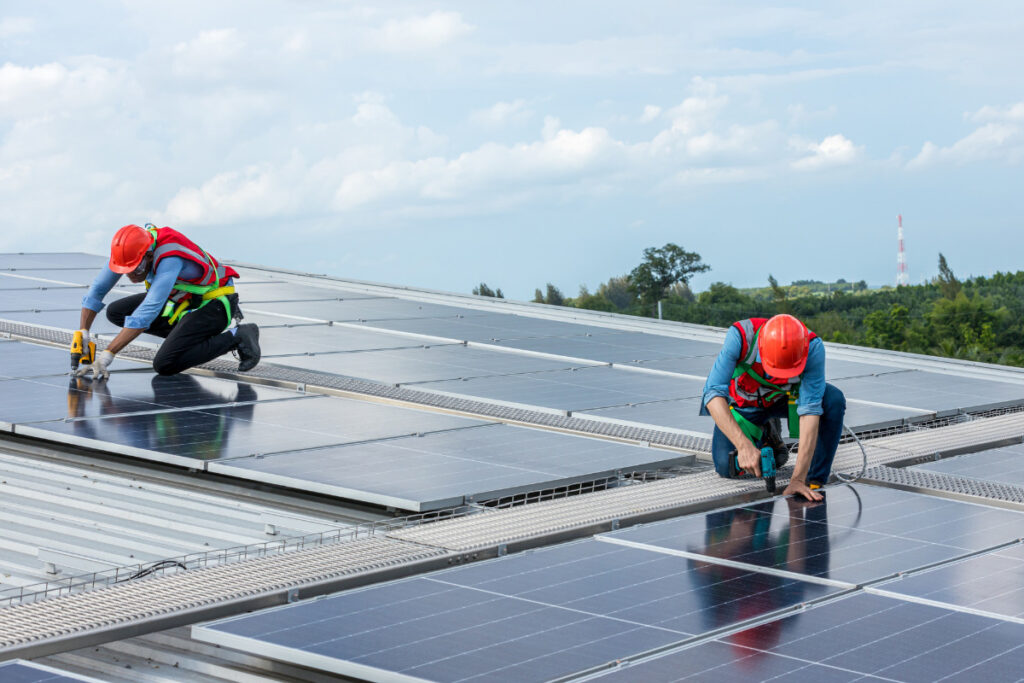Introduction
Investing in solar panels can save property owners energy costs and help them go green. However, understanding solar panel warranties is crucial to ensuring the long-term protection of your investment.
This comprehensive guide will explore the types of warranties available, what they cover, and how you can effectively safeguard your solar power system’s performance.
Types Of Solar Panel Warranties
Solar panel warranties come in three types: product, performance, and labor.
Product Warranty
This is a crucial aspect to consider when investing in solar panel systems. It protects property owners from panel defects or material issues.
For example, you install new solar panels on your property and notice cracks in their glass surface just after a few months. In such cases, a strong product warranty would have you covered and give you peace of mind knowing that the manufacturer will deal with these damages at no additional cost.
Performance Warranty
A performance warranty is a vital aspect of your solar panel investment. It guarantees the efficiency and power output of your panels over time. Unlike product warranties that generally cover defects in materials or workmanship for about 10 years, performance warranties can last between 10 and 30 years.
Evaluate performance warranties offered by manufacturers like SunPower, LG, and Panasonic. Common guarantee is 90% output for 10 years and 80% for the next 20.
Labor Warranty
The labor warranty for solar panels is an essential aspect of protection that property owners should consider when investing in a solar energy system. This warranty covers the cost of repairs, replacement, and maintenance associated with your solar panel installation.
Labor warranties can vary in length, from a few years to the panel system’s lifetime. When comparing solar companies or manufacturers, examine and understand the extent and limitations of each labor warranty offered.
For instance, some warranties may cover only specific components, while others exclude particular services like routine maintenance checks.

What Does A Solar Panel Warranty Cover?
A solar panel warranty typically covers defects in materials or workmanship, solar panel output performance, and the company’s longevity.
Defects In Materials Or Workmanship
Solar panel warranties cover defects in materials or workmanship that cause panel malfunctioning. For instance, if the panels have faulty wiring or corrosion that results in poor performance, a warranty typically covers replacement costs for defective parts.
The materials warranty is also included in the solar panel product warranty and guarantees the integrity of the equipment itself. When choosing a solar panel provider, ensure you assess their materials and workmanship warranties to avoid potential issues down the line.
Solar Panel Output Performance
The solar panel’s output performance is a crucial aspect of the warranty. Solar panel warranties typically come with a production guarantee that ensures the panels produce power at or above a certain level for an extended period.
For instance, most warranties guarantee that the panels will generate 90% of their rated power production capacity in ten years and around 80% over twenty-five years. This means that the manufacturer guarantees your panels will continue to add value and produce electricity for several decades beyond installation, making it an excellent long-term investment for property owners.
Company Longevity
When choosing a solar panel provider, it’s important to consider the longevity of the company offering warranties. This can indicate how reliable and stable their products and services are.
Choose a company with the experience to ensure kinks are worked out, and trust is established. When comparing two solar panel installation companies, consider one that’s been around for 10 years with solid warranties versus a newer company with lower prices. Cost is important, but paying extra upfront for peace of mind with an established company may be worth paying extra.
Understanding The Fine Print Of Solar Panel Warranties
To fully understand the details of a solar panel warranty, it is important to carefully read and analyze its fine print, including coverage duration and limitations, transferability and ownership clauses, and any associated service or maintenance costs.
Duration And Coverage
It is important to carefully review a solar panel warranty’s duration and coverage details before making a purchase decision. Most warranties typically cover solar panels for up to 25 years, but it is vital to consider the overall lifespan and performance of the system beyond this time frame.
Additionally, understanding what is covered under the warranty can be crucial in ensuring any potential issues are addressed without incurring additional costs.
For example, some warranties may only cover defects in materials or workmanship, while others may also include protection against decreased energy output over time.
Exclusions And Limitations
Solar panel warranties can be complex and may include exclusions and limitations that could impact the coverage of your panels. Reviewing this information carefully before purchasing solar panels for your property is essential.
One limitation often included in warranties is damage caused by natural disasters, such as hailstorms or tornadoes.
Another important factor is the degradation rate listed in the warranty details. This represents how much the solar panel’s performance decreases over time, and warranties may only cover a certain percentage of degraded power output.
Transferability And Ownership
Another essential factor to consider when understanding solar panel warranties is the transferability of the warranty. When selling the property, check if the new owner can use the remaining warranty period, especially for long-term warranties on materials, workmanship, or panel performance.
Some manufacturers allow a warranty transfer, while others require an additional fee for the service. For instance, Tesla provides assistance with transferring solar agreements free-of-charge in real estate transactions which they call the Solar Home Resale Value Guarantee policy.
On the other hand, some manufacturers may only offer limited transferability, meaning that you’ll need to check what conditions apply before selling your property.
Cost Of Service And Maintenance
Another important aspect to consider when evaluating solar panel warranties is service and maintenance costs. While most product warranties cover manufacturer defects and repairs, some may not include associated service fees.
Review the fine print and consider all costs of maintaining the system over time. Understand what services are covered by warranty and any potential out-of-pocket expenses. These will help you make informed decisions to protect investment in renewable energy technology and financial well-being.

How To Claim Your Solar Panel Warranty
To claim your solar panel warranty, document your installation process and properly maintain the panels over time. If you encounter an issue, contact the manufacturer and follow the claim process outlined in your warranty agreement.
Documenting Your Solar Panel Installation
Proper documentation of your installation is crucial to ensure that your solar panel warranty remains valid and claimable. Keep records of the installation date, make/model of panels, and relevant information such as permits and inspections. Proper documentation assists in claiming warranty and support in case of discrepancies between promised and delivered services.
In some cases, manufacturers may require evidence that an installation met specific standards before honoring a warranty claim. Keeping clear records ensures that all parties can reference these documents when needed, making for a smooth process should any issues arise.
Proper Maintenance And Care
Proper maintenance and care are crucial to keep your solar panels performing efficiently. You should ensure that the panels are free from any dirt or debris buildup, as this can cause a reduction in energy output.
It’s also essential to have a professional inspection of your solar panels regularly. This includes checking for any physical damage or loose wiring that could lead to panel malfunctioning, which may impact your warranty coverage.
By adhering strictly to proper maintenance practices, you’ll increase the longevity of your solar system and guarantee smooth access to warranty claims if needed.
Contacting Your Solar Panel Manufacturer
If you need to claim your solar panel warranty, the first step is to contact your solar panel manufacturer. Typically, this information will be provided in your warranty paperwork or the manufacturer’s website.
It is important to have documentation of your installation and proper maintenance before contacting the manufacturer. This can include records of inspections, cleanings, and repairs.
Manufacturers offer varying levels of customer support depending on how new their panels are. Smaller start-ups with less experience may have limited resources. Larger companies with established reputations have better resources to handle claims.
Following The Claim Process
If you encounter issues with your solar panels, you’ll need to claim the warranty. Start by documenting the system’s installation and purchase as evidence for future claims.
Proper maintenance and care are also essential to ensure that warranty claims remain valid. Contact your solar panel manufacturer immediately to report any problems or defects.
It’s important to be aware of how long it takes for a claim to be processed and settled, so make sure you follow up regularly. If necessary, contact your installer, who should have experience handling warranty claims and can assist throughout the process.
Do Solar Panels Void Roof Warranties
When installing solar panels, there is a possibility that the roof warranty may be affected, and it’s crucial to take necessary precautions to avoid any issues down the line.
Potential Impact On Roof Warranties
Installing solar panels on your property’s roof can enhance the efficiency of your energy consumption while reducing costs. However, it is essential to be mindful of how they may affect your roof warranty.
In most cases, installing solar panels will not void your roof warranty, but some exceptions exist. Some roofing warranties may exclude coverage for installation-phase conditions and damages caused by solar panel installation; therefore, it’s essential to confirm with the roofing manufacturer before proceeding with the installation process.
Steps To Protect Your Roof Warranty
One of the concerns of property owners when installing solar panels is the potential voiding of their roof warranty.
Additionally, check with the roofing contractor to avoid warranty nullification from solar panel installation. Proper maintenance and cleaning of panels and roof can also prevent issues affecting warranties.

Solar Panel Warranty Guide
This section will provide a comprehensive guide to help you navigate the confusing aspects of solar panel warranties, including power guarantees, repairing or replacing panels, and lifetime solar panels.
Power Guarantees
The power guarantee is one of the most important aspects of a solar panel warranty. This guarantee ensures that your solar panels will maintain a certain power output level for a specified period, typically 10 to 25 years.
It’s worth noting that high-end manufacturers often offer stronger guarantees than lower-priced options. Some even provide warranties of up to 80-84% retained power output after 25 years.
Energy Guarantees
Solar panel manufacturers may offer energy guarantees, performance, and product warranties. Energy guarantees promise the solar panels will produce a certain amount of energy over their lifetime, typically 25 years.
Power warranties cover defects and panel output degradation, while energy guarantees ensure expected electricity generation. Energy guarantees are specific to solar panel system lifetime.
Repairing Or Replacing Panels
If a solar panel stops producing energy or suffers damage, it may need to be repaired or replaced. Many solar panel warranties cover the cost of repair or replacement, but homeowners must follow particular rules and document the issue thoroughly.
If a warranty covers replacement, homeowners should expect to receive new equipment shipped from the manufacturer.
Property owners must understand their warranty coverage for repairing or replacing panels before investing in solar power. Without this knowledge, they might face an unexpected expense when something goes wrong with their system.
Lifetime Warranty Solar Panels
Investing in solar panels is a big decision, so choosing the right one with comprehensive coverage is important. Lifetime warranty solar panels are becoming increasingly popular among property owners because of their long-lasting protection.
Unlike other warranties that only last for 25 years or less, lifetime warranty solar panels promise unlimited repairs or replacements for as long as you own the panel.
Solar Panel Warranty Problems
Unfortunately, solar panel warranty problems can arise despite their long-term coverage. Common issues include limitations on the amount of power produced, unexpected outages due to external factors like weather or damage, and manufacturer defects that may not be immediately apparent.
One example of a potential problem is damage caused by improper maintenance or installation that voids the warranty. This can happen if homeowner DIY projects or unqualified contractors work on the PV system, leading to structural issues or component malfunctions not covered under the warranty terms.
Working with reputable companies that provide proper installation and clear maintenance guidelines for homeowners is crucial to avoid these types of solar panel warranty problems.
Solar Panel Warranty Insurance
Solar panel warranty insurance gives added protection for damages and defects not covered by the initial warranty. It covers accidental weather damage and unexpected equipment failures.
As solar panel tech evolves, property owners need peace of mind. Insurance ensures investment protection for unforeseen circumstances.
Conclusion
In conclusion, understanding solar panel warranties is critical to ensure you get the most out of your investment. By choosing a reputable manufacturer and carefully reviewing the terms and conditions of the warranty, you can avoid any surprises down the line.
Proper maintenance and care are also crucial to maintaining your panels’ performance over time. Remember, solar panel warranties are not all-encompassing, so it’s essential to have homeowner’s insurance in case of unforeseen events.
Always document your installation properly and contact your manufacturer promptly if you need to file a claim.

FAQs
- What is covered under a typical solar panel warranty?
A solar panel warranty typically covers manufacturing defects, power output guarantees, and workmanship issues for a specific period. The specifics of what is covered can vary depending on the manufacturer.
- How long do solar panel warranties usually last?
Most solar panel warranties last 10-25 years, with some manufacturers offering longer or shorter periods. It’s important to carefully review the terms and conditions of each warranty before making a purchase to ensure it meets your needs.
- What happens if my solar panels fail during the warranty period?
If your solar panels fail during the warranty period, you may be entitled to receive repairs or replacements at no cost from the manufacturer or installer. Contact them immediately to report any issues and begin the claim process.
- Can I transfer my solar panel warranty if I sell my home?
You can often transfer your solar panel warranty to the new homeowner when you sell your home. This can be an attractive selling point for potential buyers interested in reducing their energy bills with renewable energy sources such as solar power. However, checking with your manufacturer or installer first is important, as some may have specific requirements for transferring warranties.
